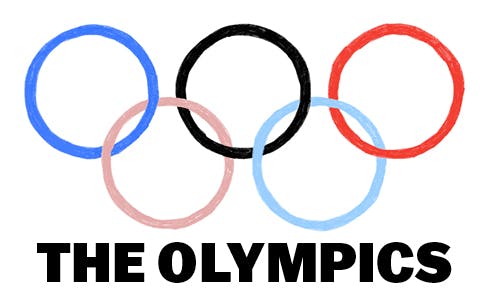
The last time you had to deliver a message, what did you do? Type with your thumbs for ten seconds and press send? That’s what I did. But what if you had to sword-fight, swim, ride a horse, run, and shoot a pistol before handing over your emojis in person? You might find you’d rather keep your thoughts to yourself.
Message delivery is the myth and conceit behind the curiously eclectic modern pentathlon. Although there’s some controversy over who exactly deserves credit for inventing such an elaborate way to exhaust people, Baron Pierre de Coubertin, founder of the modern Olympics, is generally-enough agreed to have dreamt up the event for the 1912 Games in Stockholm. The modern pentathlon was intended to test the skills of a cavalry officer behind enemy lines, who, having the worst day imaginable, would need to run, swim, épée fence, shoot a pistol, and ride an unfamiliar horse over jumps in order to deliver a message that we can only hope was very, very important. (The ancient pentathlon involved a sprint, a long jump, javelin and discus throws, and wrestling—message delivery was left to the marathoners.) George S. Patton, the future Army general, then twenty-six and a quartermaster in the 15th Cavalry, placed fifth in the inaugural event. He was injected with opium before the final footrace and ran with such crazed abandon that he could only stumble-walk over the finish line. He passed out cold and was promptly injected with more opium in hopes of waking him up. (He did, but not for a while.)
Over the decades, the modern pentathlon—which is headquartered in Monte Carlo and bears the tagline “More Than a Sport”—has several times come perilously close to being discontinued from the Olympics. Women weren’t able to compete until the 2000 Olympics in Sydney, and the Union Internationale de Pentathlon Moderne keeps tweaking its own rules in hopes of seeming, ironically, more modern. Since 1996, the individual events no longer take place over several days but are packed into a one-day extravaganza, and since 2008, the running and shooting events have been combined—that’s right, combined—though the actual firearms have been replaced with laser guns.
It’s a shame that modern pentathlon still seems permanently relegated to the 4:00am slot of NBC’s most distant cable backwaters because these are epic athletes, the message couriers of our dreams. On the men’s side, swashbuckling Russians and Hungarians have lately dominated, while among the women, Brits have battled their way to the medal podium in all of the last four games. In Rio, a modern pentathlete will begin her competition day with an epée round robin in which she faces all of her three dozen or so competitors in a series of one minute bouts. Then she will swim the 200m freestyle. Then she will jump an unfamiliar, randomly drawn horse over a timed course of four-foot-high jumps. Then she will run 3200m, stopping every 800m to shoot a target with a laser pistol. Then, presumably, she will eat a great deal of pizza.
